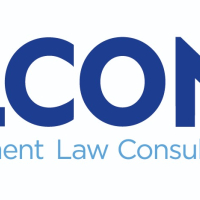27.11.2018
Take it or leave it?
Dipen Tanna Wealth Management
Financial Adviser
The chance to pocket a 25% tax-free lump sum is one of the key benefits of saving into a pension, but you don’t have to take it in one go, or even at all.
Many pensions allow you, usually from the age of 55, to take up to a quarter of your retirement savings as a tax-free lump sum. This is one of the most popular features of the pensions system, as the money can be used to help grown-up children get on the property ladder, pay off an outstanding mortgage or, perhaps, fund a long-hoped-for holiday after a life of work.
Yet the decision to take cash this way is much more complicated than it used to be. Before the introduction of pension freedoms in 2015, most people simply took all their tax-free cash upfront and purchased an annuity with the remaining fund, which would provide them with an income for life.
Today, a defined contribution pension can be taken in a variety of ways. If you wish, you can keep it invested and draw an income, or access it as cash either gradually or in one go. Moreover, your pension pot can now be more easily left as part of a tax-free inheritance. As long as the money remains in the pension, it can be passed to heirs free of Inheritance Tax (IHT) – and potentially free of Income Tax, depending on certain conditions.
This favourable tax treatment means that, in many circumstances, it can make sense to draw income from alternative sources in retirement, so a greater value of the pension can potentially pass to loved ones in a tax-efficient manner.
Leaving the pension untouched also means that the investments can potentially benefit from more years of compounding returns. An extra 10 or 20 years of tax-efficient growth could make a big difference to the amount of income available to you or your family in the future.
Yet many individuals still choose to receive all their tax-free cash at outset, simply because it is available to them and appears to be an attractive option. Those funds may then sit in a bank account for years, attracting little interest, being eroded by inflation, and potentially subject to IHT.
A recent survey by Aegon found that some 54% of savers plan to take their tax-free lump sum at retirement, with 15% intending to stash the money in bank accounts, which often offer derisory rates of interest.1
“Once you take your tax-free cash from your pension, that money becomes part of your estate," says Ian Price, divisional director at St. James’s Place. "Putting it in a bank account will also generally limit its ability to grow tax-efficiently in future. So unless you have a definite plan for the cash, it may be better to defer taking pension benefits, including your tax-free entitlement.”
“Retirees might want to consider utilising their taxable savings first, then their ISAs, and then their pension last. That may sound odd, but by doing so they can ensure that that their pension, which is generally the most tax-efficient way of saving, is shielded from HMRC for as long as possible,” says Price.
Crystallising thoughts
If you cannot avoid dipping into your pension savings, then a good way to minimise tax is to phase withdrawals by combining small amounts of tax-free cash and taxable withdrawals to meet the need for income or capital.
So rather than ‘crystallising’ the whole pension fund, a portion of it can be designated to provide benefits, with 25% of that amount being tax-free. This means that more of the fund can remain in the tax-efficient pension wrapper and hopefully grow to create more tax-free cash for the future.
Of course, many people will continue to take all their tax-free cash up front and then the rest of their pension gradually over time, or leave it invested. It must be remembered that the most appropriate approach depends on your own circumstances and income needs, not just on the desire to avoid tax.
If you are unsure about the most suitable way to take retirement benefits, then you should seek financial advice.
The value of an investment with St. James's Place will be directly linked to the performance of the funds you select and the value can therefore go down as well as up. You may get back less than you invested.
An investment in equities does not provide the security of capital associated with a deposit account with a bank, building society or Cash ISA.
The levels and bases of taxation, and reliefs from taxation, can change at any time and are dependent on individual circumstances.
1 https://www.aegon.co.uk/news/should_you_take_your25tax-freepensionlumpsum.html, June 2017
Many pensions allow you, usually from the age of 55, to take up to a quarter of your retirement savings as a tax-free lump sum. This is one of the most popular features of the pensions system, as the money can be used to help grown-up children get on the property ladder, pay off an outstanding mortgage or, perhaps, fund a long-hoped-for holiday after a life of work.
Yet the decision to take cash this way is much more complicated than it used to be. Before the introduction of pension freedoms in 2015, most people simply took all their tax-free cash upfront and purchased an annuity with the remaining fund, which would provide them with an income for life.
Today, a defined contribution pension can be taken in a variety of ways. If you wish, you can keep it invested and draw an income, or access it as cash either gradually or in one go. Moreover, your pension pot can now be more easily left as part of a tax-free inheritance. As long as the money remains in the pension, it can be passed to heirs free of Inheritance Tax (IHT) – and potentially free of Income Tax, depending on certain conditions.
This favourable tax treatment means that, in many circumstances, it can make sense to draw income from alternative sources in retirement, so a greater value of the pension can potentially pass to loved ones in a tax-efficient manner.
Leaving the pension untouched also means that the investments can potentially benefit from more years of compounding returns. An extra 10 or 20 years of tax-efficient growth could make a big difference to the amount of income available to you or your family in the future.
Yet many individuals still choose to receive all their tax-free cash at outset, simply because it is available to them and appears to be an attractive option. Those funds may then sit in a bank account for years, attracting little interest, being eroded by inflation, and potentially subject to IHT.
A recent survey by Aegon found that some 54% of savers plan to take their tax-free lump sum at retirement, with 15% intending to stash the money in bank accounts, which often offer derisory rates of interest.1
“Once you take your tax-free cash from your pension, that money becomes part of your estate," says Ian Price, divisional director at St. James’s Place. "Putting it in a bank account will also generally limit its ability to grow tax-efficiently in future. So unless you have a definite plan for the cash, it may be better to defer taking pension benefits, including your tax-free entitlement.”
“Retirees might want to consider utilising their taxable savings first, then their ISAs, and then their pension last. That may sound odd, but by doing so they can ensure that that their pension, which is generally the most tax-efficient way of saving, is shielded from HMRC for as long as possible,” says Price.
Crystallising thoughts
If you cannot avoid dipping into your pension savings, then a good way to minimise tax is to phase withdrawals by combining small amounts of tax-free cash and taxable withdrawals to meet the need for income or capital.
So rather than ‘crystallising’ the whole pension fund, a portion of it can be designated to provide benefits, with 25% of that amount being tax-free. This means that more of the fund can remain in the tax-efficient pension wrapper and hopefully grow to create more tax-free cash for the future.
Of course, many people will continue to take all their tax-free cash up front and then the rest of their pension gradually over time, or leave it invested. It must be remembered that the most appropriate approach depends on your own circumstances and income needs, not just on the desire to avoid tax.
If you are unsure about the most suitable way to take retirement benefits, then you should seek financial advice.
The value of an investment with St. James's Place will be directly linked to the performance of the funds you select and the value can therefore go down as well as up. You may get back less than you invested.
An investment in equities does not provide the security of capital associated with a deposit account with a bank, building society or Cash ISA.
The levels and bases of taxation, and reliefs from taxation, can change at any time and are dependent on individual circumstances.
1 https://www.aegon.co.uk/news/should_you_take_your25tax-freepensionlumpsum.html, June 2017
Dipen Tanna Wealth Management
Financial Adviser
As a Associate Partner Practice of St. James’s Place Wealth Management based in London, my emphasis is on maintaining a long-term relationship with my clients and to provide them with a source of…
Property
Why Do We Need Emergency Lighting?
Emergency lighting plays a critical role in ensuring life safety first in any…
Employment & HR
Labour’s new Employment Rights Bill: challenges employers...
The introduction of Labour’s Employment Rights Bill on 10th October 2024 has created a significant shift in how…
More Articles
Business Management
The Value of a Sustainability Strategy in the Tender Process
In today’s competitive landscape, businesses face increasing pressure to demonstrate their commitment to…
Business Management
Unlocking the Power of Raw Financial Data
At Master of Coin Consulting, we offer independent strategic finance advice to help micro to medium-sized businesses…
Would you like to promote an article ?
Post articles and opinions on Professionals UK
to attract new clients and referrals. Feature in newsletters.
Join for free today and upload your articles for new contacts to read and enquire further.







